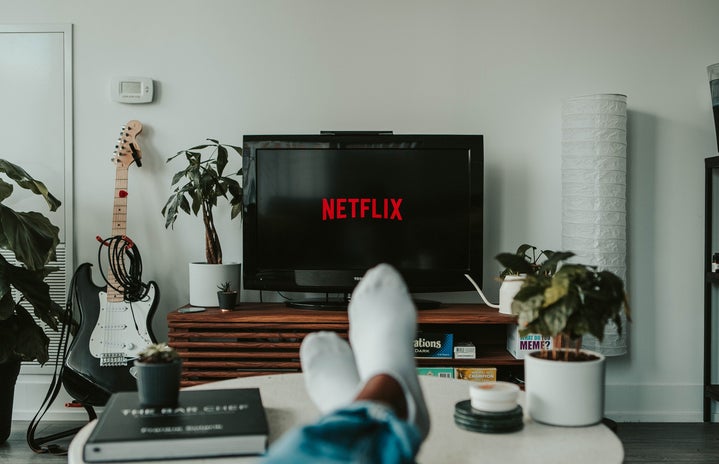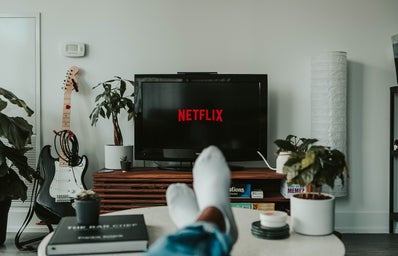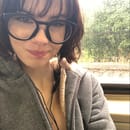The Her Campus National Editors write about products we love and think you’ll love too. Her Campus has affiliate partnerships, so we get a share of the revenue from your purchase. All products are in stock and all prices are accurate as of publication.
My Little Pony is a show you’ve definitely heard of. It’s a cutesy animated show made to teach little girls how to be good friends. But if that is all you see the show for, then you are missing out because it’s also about a utopian, feminist/matriarchal society with wholesome characters and riveting adventures.
1. Feminism and a Matriarchy
Yeah, you read that right! My Little Pony is feminist. But not in the blunt, in-your-face kind of way. It’s more of a natural, egalitarian, ‘this is how our society’s always been’ kind of way. The majority of the characters are women, and those ponies are complicated and truly individual, with their own dreams, aspirations, strengths, and flaws. They break stereotypes and never rely on men to come in and save the day. This is proven further by the royalty of the kingdom of Equestria: Princess Celestia and Princess Luna. The rulers of all of Equestria are two sisters. But this isn’t brought up as some woke idea in the show, it’s just how it is. Now all of this isn’t to say that men aren’t involved in the show! Twilight Sparkle’s brother, Shining Armor, is an important and valued character with just as much personality as the others. Ultimately, the genders of any ponies don’t account for anything about the characters themselves, which is a refreshing and comforting aspect of the My Little Pony universe compared to our own.
2. Escapism and Comfort Watching
You will laugh, and you will cry. There are genuinely emotional moments and story arcs on par with any great and solidly written show. The ponies go on many exciting adventures, with fight scenes, plot twists, and everything you could want! Around these compelling and ambitious adventures, the show is also very uplifting and easy to just sit back and enjoy. I know many people who turn to rewatch this show when they’re feeling down, knowing that they can’t help but smile while watching it. It offers a nice escapism to a fictional but well-built world where people have empathy for each other and generally manage to work together. Besides all that, it’s just cute and nice to look at with colorful, bright frames and big sparkly eyes.
3. Character Writing and Growth
Funnily enough, I find that the characters in My Little Pony are more relatable than most of the characters in “adult shows” on TV for the simple reason that (most of the time) they have simple, normal problems, not unconventional crazy problems. I struggle to relate to a lot of ‘adult’ shows, because they often rely on sex, violence, and money for the story. I just don’t care about that sort of stuff because I’m just a college girl who studies and spends time with friends. To contrast the ‘adult’ shows, My Little Pony often centers each episode around one problem that may be as simple as not knowing how to ask for help or getting jealous of what your friend has. While I can’t promise that you will love every character in My Little Pony, I can say with confidence that with all of the diverse personalities and interests covered, you will find one –if not many– pony that you can easily connect with.
Additionally, My Little Pony offers genuine character growth with every single episode. They build on each other rather than the stereotypical children’s show that resets with every episode.
4. Complex, Adaptive Morals
Most children’s shows have pretty unembellished moral messages. For instance “share,” “be grateful,” and “don’t lie.” But My Little Pony takes on very morally complicated situations, including episodes where it may be quite ambiguous who is “in the wrong” –as in it focuses on cooperation and compromise over determining a “winner” to the problems. It also challenges difficult topics in our society like bullying (Season 3, Episode 4), xenophobia (Season 1, Episode 9), and even colonialism (Season 1, Episode 21). The ponies of Equestria learn to stop judging other species, like when they meet Zecora who is a zebra, which is clearly reflective of racism. My Little Pony is able to tackle sensitive, adult topics in a way that is still palatable for younger audiences as well.
5. Villain Redemption
Almost every single episode that has some sort of villain has been about turning enemies into friends. No matter if the villain is a heartbroken cosmic princess from the moon or just a bully in school, by the end of the episode they leave their wicked ways behind once they see true friendship. This is what the power of friendship really means in this show: no character is so evil that they are beyond redemption. It teaches us a lesson that I know most adults could definitely learn from; giving people a chance. Being kind, being a good friend, can be enough to completely your relationship with someone. As they say, be the change you want to see in the world!
6. Word Building and Theory Crafting
I do want to put a disclaimer that although I highly praise this show for its complexity and maturity on many topics, the show isn’t really that mature compared to other kids’ shows/movies, for example, The Lion King. BUT! I haven’t seen a lot of kids’ shows that evolve in terms of world building at the same scale as My Little Pony. This is a show well made for analysis and thinking beyond what the show blatantly tells you. Anyone could spend hours or days thinking about the nuances and histories of this show. Not just about the character or setting, but also about the moral and philosophical implications of the story!
7. References Adults Will Appreciate
Finally, the show is very self-aware. It knows what it is. It makes fun of itself. It knows when to be serious and when not to be. Around the start of the third season, the creators became very aware of their audience, specifically how it included many adults, so they really started to lean into that with the story and references moving on. For example, one fan-favorite is “Doctor Hooves” also known as “Time Turner” which is clearly a reference to David Tennant’s version of The Doctor from Doctor Who. Additionally, in the episode “Read It and Weep” (Season 2, Episode 16) Rainbow Dash imagines herself as Indiana Jones. There are several more, including ponies referencing The Big Lebowski, Rick and Morty, and Breaking Bad.
My Little Pony may be a great show for little girls, but it is also a great show for grown women and men alike. There are many aspects to the show that elevate it beyond just a simple kid’s show for easy entertainment and there is real passion put into it that you can feel as you watch. I hope you give it a chance, and enjoy the fulfilling watch!


